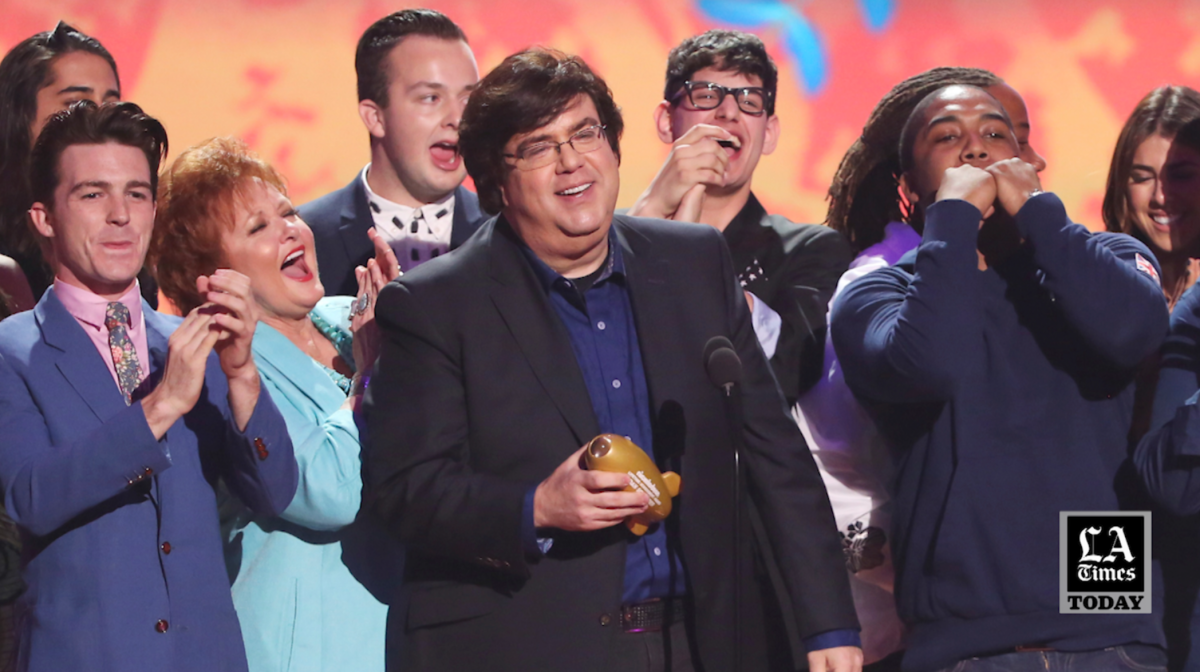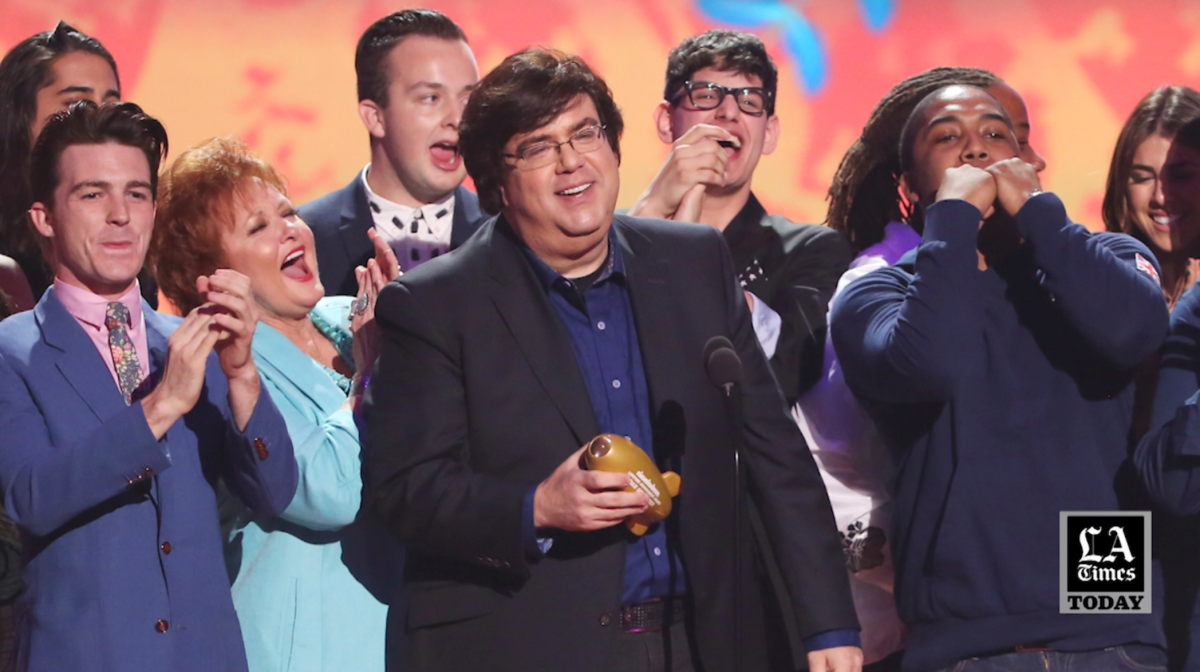It detailed disturbing child sexual abuse cases involving two crew members on creator Dan Schneider’s shows and included a bombshell interview with Drake Bell, former star of the series “Drake & Josh,” who says he was abused by Brian Peck, a dialogue coach. (Peck was convicted in 2004.)
“Quiet on Set” also featured interviews with other former child actors, parents and crew members who accuse Schneider of sexist and racist behavior and of writing inappropriate adult-themed content.
Many viewers reconsidered their love for shows they adored as children, while stars including Kenan Thompson have expressed support for people speaking out about their experiences. Schneider also issued a video apology.
The reaction to the series has been so extraordinary that filmmakers Mary Robertson and Emma Schwartz created an additional episode, “Quiet on Set: Breaking the Silence,” which premiered Sunday and is available to stream on Max.
Hosted by journalist Soledad O’Brien, the bonus episode includes disturbing unseen footage and new interviews with Bell and “All That” stars Giovonnie Samuels and Bryan Hearne, who discuss the reaction to “Quiet on Set.”
It also features an interview with Shane Lyons, former “All That” cast member, who was not part of the original episodes but was motivated to come forward and share his own troubling experiences.
Here are key takeaways from the episode.
Drake Bell says he has not heard from any of the people who wrote letters in support of Brian Peck.
“Quiet on Set” details how many famous and influential people, including James Marsden, Taran Killam and Joanna Kerns, wrote letters on behalf of Peck.
In the bonus episode, O’Brien notes that “Boy Meets World” stars Rider Strong and Will Friedle, who wrote letters in support of Peck, have since expressed regret about their actions on their podcast. She asks Bell if this has changed how he looks back on Peck’s sentencing, when Bell walked into the courtroom and saw so many familiar faces there in support of his abuser.
“No,” he replies. “I worked with Will on ‘[Ultimate] Spider-Man’ and there was a lot of opportunity to apologize or talk about it and he never did.”
But, he continues, “Everybody deals with their trauma in different ways. Everybody comes to different conclusions at different times in their lives and realizations. And I mean I really appreciate their perspective now. But I mean, that day is so ingrained in my mind, and … nobody’s reached out to me.”
“No one else?” O’Brien asks. “No one at all.”
“Personally, no, not one person who’s written one of those letters has reached out to me,” he says.
This may have changed since Bell spoke to O’Brien for “Quiet on Set.” On Friday, the actor wrote on X, “I just had the most amazing conversation with @RiderStrong we are all healing together. I have nothing but love and forgiveness for him.”
Black actor Raquel Lee Bolleau shares a degrading sketch in which she was spit on by Amanda Bynes.
The episode features a previously unaired interview with Raquel Lee Bolleau, an actor who starred in “The Amanda Show.” She describes a sketch called “The Literals,” in which she repeatedly told Bynes’ character to “spit it out.”
“Every time I said. ‘Spit it out,’ she would spit what was in her mouth — whether it was water, whatever — directly in my face,” says Bolleau. “Everybody thought it was so funny. Ha ha. Everybody’s laughing. Me? I did not find it funny.”
Bolleau was infuriated. “I was so mad that the director hurried and put me on the side of the set and was like, ‘Listen, Raquel. Breathe in, breathe out. She’s the star of the show.’ He said, ‘Don’t make too much of a problem. I’m going to ask her not to spit in your face. But you have to keep your cool.’”
O’Brien shows the footage to Bryan Hearne and his mother, Tracey Brown, who says the incident Bolleau described was “racist, period.”
“That hit me really hard,” says Hearne. “To just be told you don’t matter in that moment you’re being spit on? And it’s like, this person matters more than you.”

(Matt Sayles / Invision / Associated Press)
Shane Lyons alleges that Peck made inappropriate sexual comments to him.
Lyons tells O’Brien how he once dreamed of being the new Chris Farley — dreams that were dashed when he was fired from “All That” when he was 16.
He also says that Peck was charming, someone that many of the child actors on the show were “enamored with,” because he was “someone that we knew we can kind of run things by, work with, improvise with. It was very helpful in that context.”
Lyons says he found Bell’s story “absolutely gut-wrenching,” and that he was lucky that “nothing like that happened to me.” Though, he adds, “There were certainly some passes.”
Lyons goes on to recall an incident in which Peck made a joke about “blue balls” — which, at the time, he thought was a reference to racquetballs.
“I just didn’t know what they were. And he goes, ‘Well, we know what blue balls are. Right, Shane? I said, ‘Yeah, like racquetballs. All right, I’m a kid. 13, 14. As I think back now, as an adult, as a 36-year-old, I would never have a conversation with a 13-year-old boy like he had with me. It makes absolutely zero sense.”
Giovonnie Samuels says she told Schneider she was “terrified” of him.
Samuels says she felt like she was treated as a token Black actor and consistently asked to perform in stereotypical roles during the years she starred on “All That.” “I was told, ‘You’re so talented. We don’t know what to do with you!’” she tells O’Brien.
Samuels also says that Schneider reached out to her a few weeks before the documentary aired and asked if she would provide a quote in support of him — even though he also knew that she was participating in the series.
“I did come back to do [the series] ‘Henry Danger,’ which was some time later. He was like, You had a good time on set, right?” she says. “I told him I was terrified of him. … I said, ‘You have the power to make people stars. And I was intimidated by you. I wanted to do a good job.”
